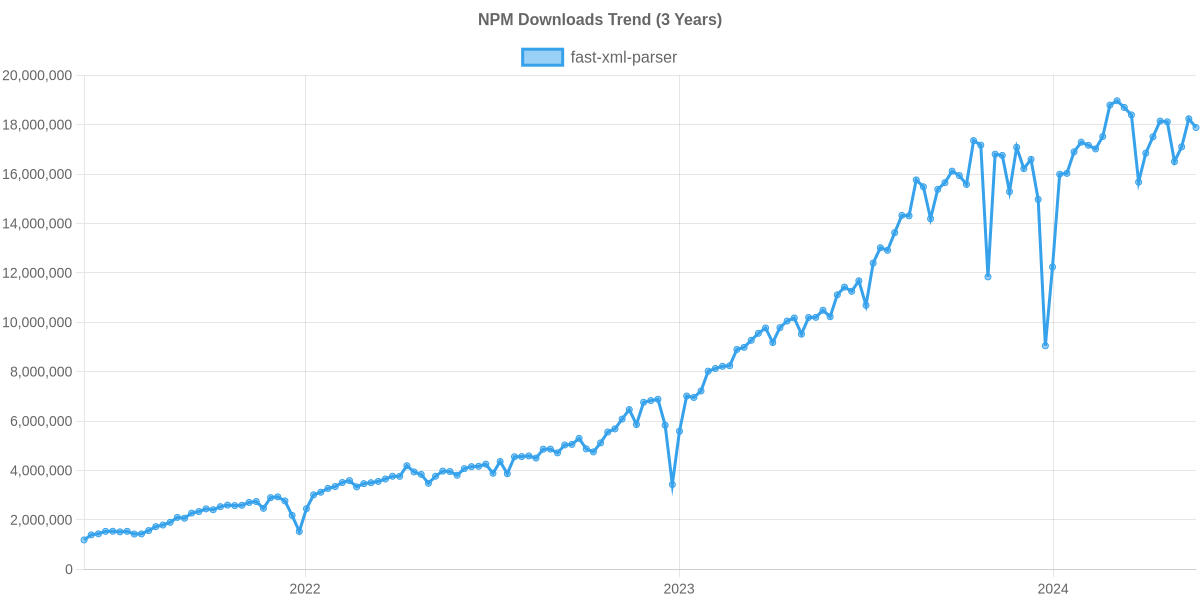Performance
- fast-xml-parser:
fast-xml-parser is designed for speed and efficiency, making it one of the fastest XML parsers available. It minimizes memory usage and optimizes parsing time, making it suitable for applications that require quick processing of large XML files.
- xml2js:
xml2js is generally slower than fast-xml-parser but offers more features and flexibility. It is suitable for applications where performance is important but not the primary concern, allowing for more complex XML handling.
- xml-js:
xml-js offers moderate performance, focusing more on simplicity and ease of use than on raw speed. While it may not be the fastest option for large XML files, it provides a good balance for smaller documents and straightforward use cases.
Ease of Use
- fast-xml-parser:
fast-xml-parser has a straightforward API but may require some initial configuration to get the best performance. It is user-friendly for those familiar with XML parsing but might have a slight learning curve for beginners.
- xml2js:
xml2js has a more complex API due to its extensive options and configurations. While it provides powerful features, it may require a deeper understanding of its API to utilize effectively.
- xml-js:
xml-js is known for its simplicity and ease of use, making it an excellent choice for developers who want to quickly convert XML to JSON and vice versa without dealing with complex configurations.
Flexibility
- fast-xml-parser:
fast-xml-parser offers limited flexibility in terms of customization compared to xml2js. It is optimized for performance, which may restrict some advanced parsing options.
- xml2js:
xml2js excels in flexibility, allowing developers to customize the parsing process extensively. It supports various options for handling attributes, namespaces, and other XML-specific features.
- xml-js:
xml-js provides basic flexibility for converting XML to JSON and back, but it lacks advanced features for handling complex XML structures or custom parsing rules.
Error Handling
- fast-xml-parser:
fast-xml-parser has basic error handling capabilities, focusing on performance. It may not provide detailed error messages, which can be a drawback for debugging complex XML documents.
- xml2js:
xml2js provides comprehensive error handling and validation features, making it ideal for applications that need to ensure the integrity of the XML data being processed.
- xml-js:
xml-js offers minimal error handling, primarily focusing on conversion without extensive validation or error reporting, making it less suitable for critical applications that require robust error management.
Community and Support
- fast-xml-parser:
fast-xml-parser has a growing community and is actively maintained, but it may not have as extensive documentation or community support as more established libraries.
- xml2js:
xml2js benefits from a large user base and extensive documentation, making it easier to find support, tutorials, and community-contributed resources.
- xml-js:
xml-js has a smaller community and limited support resources, which may pose challenges for developers seeking help or examples.












 * Y-axis: requests per second
* Y-axis: requests per second

